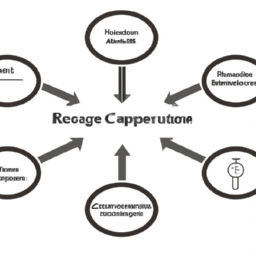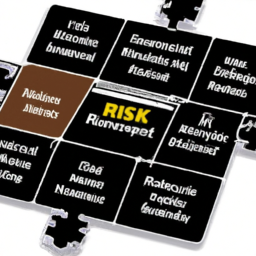Did you know that project managers who have a mentor are 80% more likely to advance their careers?
Mentorship plays a crucial role in the project manager career path, providing invaluable guidance and support for professional growth. Whether you are just starting out in project management or looking to take your career to the next level, having a mentor can make all the difference.
Mentorship not only shapes your career trajectory but also helps develop essential leadership skills. Through one-on-one guidance, mentors offer insights, share experiences, and provide feedback that can enhance your ability to lead and manage projects successfully.
Additionally, mentorship opens doors to career advancement and opportunities by connecting you with influential professionals in the field.
Establishing a mentoring relationship is a vital step in your project management journey. Finding a mentor who aligns with your goals and values can provide a safe space for learning, growth, and personal development.
In this article, we will explore the benefits of having a mentor in the project management field, how mentorship shapes the project manager career path, and strategies for finding and establishing a mentorship relationship.
Get ready to take your project management career to new heights with the power of mentorship.
Key Takeaways
- Project managers with a mentor have a higher likelihood of advancing their careers by 80%.
- Mentorship in project management provides guidance, support, and opportunities for learning and growth.
- Mentors offer valuable insights, share experiences, and provide feedback to enhance leadership skills.
- Mentorship programs help project managers develop essential skills, build industry connections, and position themselves for career advancement and future leadership opportunities.
The Benefits of Having a Mentor in the Project Management Field
Having a mentor in the project management field is like having a guiding light that illuminates the path to success, propelling aspiring project managers towards their goals.
One of the key benefits of having a mentor is the opportunity for networking. Through their experience and connections, mentors can introduce you to industry professionals, opening doors for potential job opportunities and collaborations.
Additionally, mentors provide valuable guidance and feedback, helping you develop your skills and gain confidence in your abilities. They can offer insights and share their own experiences, allowing you to learn from their successes and mistakes.
By having a mentor, you can accelerate your learning curve and avoid common pitfalls. Mentorship in the project management field shapes your career path by providing the necessary support and guidance to navigate the complexities of the industry, ultimately propelling you towards achieving your professional goals.
How Mentorship Shapes the Project Manager Career Path
By partnering with experienced professionals who have walked the same path, project managers can gain valuable insights and guidance that shape their journey towards success. Mentorship is a powerful tool in the project management field, offering numerous benefits and strategies for career development.
Here are three ways mentorship can shape your project manager career path:
-
Knowledge Transfer: Mentors possess years of experience and industry knowledge, which they willingly share with mentees. This transfer of knowledge equips project managers with practical skills and insights that can accelerate their career growth.
-
Networking Opportunities: Mentors often have extensive networks within the industry, which they can introduce mentees to. These connections can open doors to new opportunities, such as job prospects, partnerships, and collaborations.
-
Personal Growth: Mentorship goes beyond career development; it also focuses on personal growth. Mentors provide guidance and support, helping project managers build confidence, develop leadership skills, and navigate challenges.
By actively engaging in mentorship, project managers can develop the necessary leadership skills to excel in their careers and take on greater responsibilities.
The Role of Mentorship in Developing Leadership Skills
Through mentorship, aspiring leaders can cultivate essential skills and qualities that propel their professional growth and pave the way for future success. Mentorship plays a crucial role in developing leadership skills, as mentors provide guidance, support, and opportunities for learning and growth. They help mentees develop self-awareness, emotional intelligence, and effective communication skills, which are all vital for successful leadership. Additionally, mentors can share their experiences and insights, helping mentees navigate challenges and make informed decisions. To further illustrate the impact of mentorship on leadership development, consider the following table:
| Skills Developed through Mentorship | Benefits for Leadership Development |
|---|---|
| Decision-making | Improved ability to make informed decisions and solve problems |
| Conflict resolution | Enhanced skills in managing and resolving conflicts |
| Strategic thinking | Increased ability to think critically and strategically |
| Team building | Improved skills in building and leading high-performing teams |
| Visionary leadership | Ability to inspire and motivate others towards a shared vision |
By actively participating in mentorship programs, aspiring leaders can acquire these skills and qualities, positioning themselves for career advancement and future leadership opportunities.
Transitioning into the subsequent section about ‘mentorship for career advancement and opportunities’, mentorship not only helps in developing leadership skills but also provides valuable guidance and support for career growth.
Mentorship for Career Advancement and Opportunities
Ready to take your professional journey to the next level and unlock new opportunities for career advancement? Mentorship is the key that can open doors and provide invaluable guidance and support along the way.
Here are three ways mentorship can help with your career growth and provide professional guidance:
-
Knowledge and Experience: A mentor can share their wisdom and expertise, helping you navigate the challenges and pitfalls of your career. They can provide insights and advice based on their own experiences, giving you a competitive edge.
-
Networking: Mentors often have extensive networks and can introduce you to influential individuals in your industry. These connections can lead to new career opportunities, such as job openings or project collaborations.
-
Skill Development: A mentor can identify areas for improvement and provide targeted guidance to help you develop new skills. This can enhance your professional capabilities and make you a more desirable candidate for promotions and new opportunities.
Mentorship is vital for career growth and professional guidance. It establishes a foundation for success and sets the stage for the importance of mentoring relationships in project management.
The Importance of Mentoring Relationships in Project Management
In order to be successful in project management, it’s crucial to establish mentoring relationships that prioritize building trust and mutual respect. By fostering an environment of continuous learning, both mentors and mentees can stay up-to-date with industry trends and best practices. This ultimately enhances their project management skills.
Additionally, creating a supportive and collaborative work environment allows for open communication and the sharing of knowledge. This leads to more efficient and effective project outcomes.
Building Trust and Mutual Respect
Imagine yourself as a project manager, navigating the treacherous waters of building trust and mutual respect, much like a skilled sailor maneuvering through a stormy sea.
Building rapport is crucial in establishing trust with your team members and stakeholders. Take the time to get to know them personally, showing genuine interest in their lives and experiences.
Effective communication is also key, ensuring that everyone is on the same page and understands their roles and responsibilities. Encourage open and honest dialogue, actively listening to others’ perspectives and ideas. Foster a collaborative environment where everyone feels comfortable sharing their thoughts and opinions.
Additionally, lead by example, demonstrating integrity and fairness in your actions. By prioritizing trust and mutual respect, you will create a strong foundation for your project’s success.
Now, let’s explore how fostering a culture of continuous learning can further enhance your project management career.
Fostering a Culture of Continuous Learning
In order to build trust and mutual respect with your mentee, it is essential to foster a culture of continuous learning. This involves creating an environment where both you and your mentee are committed to ongoing improvement and knowledge sharing. By emphasizing the importance of continuous improvement, you can inspire your mentee to constantly seek new knowledge and skills, which will ultimately benefit their project management career.
One effective way to promote continuous learning is through knowledge sharing. Encourage your mentee to share their experiences and insights with you, as well as with their colleagues. This not only helps them solidify their understanding of project management concepts, but also allows others to learn from their experiences. Furthermore, make sure to provide your mentee with opportunities for professional development, such as workshops, seminars, and conferences.
By fostering a culture of continuous learning, you are not only helping your mentee grow, but also creating a supportive and collaborative work environment.
Creating a Supportive and Collaborative Work Environment
To create a supportive and collaborative work environment, you can foster open communication and encourage teamwork among your colleagues. As a project manager, your role is crucial in setting the tone for the team and promoting a positive work culture.
Supportive leadership is essential in creating an environment where team members feel comfortable expressing their ideas, concerns, and challenges. Actively listen to your team members, provide guidance, and offer constructive feedback to help them grow professionally.
Encourage collaboration by promoting cross-functional teamwork and creating opportunities for knowledge-sharing and learning. By fostering a culture of open communication and collaboration, you can create an environment where everyone feels valued and motivated to contribute their best.
This supportive and collaborative atmosphere sets the foundation for finding and establishing mentorship relationships, a topic we will delve into next.
How to Find and Establish a Mentorship Relationship
When it comes to finding and establishing a mentorship relationship, there are several key points to consider.
First, it’s important to identify potential mentors who have the experience and knowledge you seek.
Once you’ve identified potential mentors, you can approach them and initiate a mentorship relationship by expressing your interest and explaining how you believe they can help you in your career.
Finally, it’s crucial to establish clear goals and expectations from the beginning of the mentorship relationship to ensure that both parties are on the same page and working towards a common objective.
Identifying Potential Mentors
As you begin your journey in the project manager career path, imagine finding yourself surrounded by a group of experienced professionals who have the power to guide and shape your future – these potential mentors are the key to unlocking your full potential.
Finding suitable mentors is crucial in your quest for growth and success. Mentorship programs provide a structured approach to connecting with mentors, offering invaluable opportunities for learning and development.
Here are four reasons why identifying potential mentors is essential:
- Gain valuable insights and perspectives from someone who’s been in your shoes.
- Receive guidance and advice tailored to your specific career goals.
- Build a strong network of industry connections and opportunities.
- Develop essential skills and knowledge through hands-on experience and real-world challenges.
By identifying potential mentors, you open yourself up to a world of possibilities. Now, let’s explore the next step in your journey: approaching and initiating a mentorship relationship.
Approaching and Initiating a Mentorship Relationship
Now that you’ve identified potential mentors, it’s time to take the next step in your career journey by approaching and initiating a mentorship relationship. This is a crucial step in your development as a project manager, as it sets the foundation for a successful and fulfilling mentorship.
When approaching mentors, it’s important to be clear about your goals and expectations. Be confident and professional in your approach, expressing your admiration for their expertise and explaining how you believe their guidance could benefit your career.
Once the mentorship begins, it’s crucial to maintain a strong and open line of communication. Regularly schedule meetings or check-ins to discuss your progress, challenges, and any questions you may have. This will help foster a supportive and productive mentorship relationship.
Transitioning into the next section, establishing clear goals and expectations will ensure that both you and your mentor are aligned in your objectives.
Establishing Clear Goals and Expectations
Setting clear goals and expectations in a mentorship relationship is like charting a course for success, guiding both mentor and mentee towards a shared vision. It is crucial to establish clear expectations from the beginning to ensure that both parties are on the same page.
Here are three reasons why clear expectations and goal setting are essential in a mentorship relationship:
-
Clarity: Clearly defining the goals and expectations helps both the mentor and mentee understand what they are working towards. This clarity allows for better communication and alignment throughout the mentoring process.
-
Accountability: Setting specific goals and expectations provides a framework for measuring progress and holding each other accountable. It ensures that both mentor and mentee are actively engaged and committed to meeting the established objectives.
-
Motivation: Clear goals and expectations can motivate and inspire both mentor and mentee to push themselves further. When they have a clear vision of what they want to achieve, they are more likely to stay focused and motivated throughout the mentorship journey.
By establishing clear goals and expectations, mentorship relationships can be more effective and rewarding for both parties involved.
Frequently Asked Questions
What are some common challenges that project managers face in their career?
Challenges that project managers commonly face include managing scope creep, meeting tight deadlines, and handling conflicts within the team.
To address these challenges, project managers can implement effective communication strategies, such as regular team meetings and clear project expectations. They can also utilize project management tools and techniques, like creating a detailed project plan and using agile methodologies.
Additionally, developing strong leadership skills and fostering a positive team culture can help project managers overcome these challenges and achieve successful project outcomes.
How can a mentor help project managers navigate these challenges?
A mentor can be an invaluable resource for project managers facing career challenges. They can provide guidance and support, helping project managers navigate these obstacles with greater ease. Mentorship benefits include access to a wealth of knowledge and experience, as well as personalized advice and feedback. Effective mentorship strategies may involve regular check-ins, goal setting, and the sharing of best practices.
Overall, having a mentor can greatly enhance a project manager’s ability to tackle and overcome career challenges.
Are there any specific industries or sectors where mentorship is especially beneficial for project managers?
In specific industries or sectors, mentorship can be like a guiding lighthouse, illuminating the path for project managers. The benefits of mentorship in project management are particularly valuable in industries with complex and unique challenges such as construction, healthcare, and technology.
In these sectors, mentorship provides project managers with invaluable insights, industry-specific knowledge, and guidance to navigate the complexities of their projects. Mentorship plays a crucial role in the career path of project managers, helping them develop the necessary skills and expertise to excel in their roles.
Can mentorship also benefit experienced project managers or is it mainly for those just starting their careers?
Mentorship can greatly benefit experienced project managers in their career growth. While mentorship is often associated with newcomers, it provides valuable advantages for those with experience.
Mentors can offer insights from their own experiences, helping experienced project managers navigate challenges and expand their skillset. Additionally, mentors can provide guidance on career progression, helping project managers identify and seize new opportunities.
The impact of mentorship on career growth for experienced project managers should not be underestimated, as it can lead to increased job satisfaction and advancement opportunities.
What are some ways that project managers can give back and become mentors themselves?
To establish a mentorship program in project management, there are several effective ways you can give back and become a mentor yourself.
By sharing your knowledge and experiences, you can guide aspiring project managers, helping them navigate challenges and develop their skills.
Not only does mentorship benefit mentees by providing valuable guidance, but it also benefits mentors.
Mentoring can enhance your leadership abilities, expand your professional network, and provide a sense of fulfillment as you contribute to the growth of others in the field.
Conclusion
In conclusion, finding a mentor in your project management career can have numerous benefits. They can shape your career path, help develop your leadership skills, and open up new opportunities for advancement.
While some may argue that mentorship requires a significant time commitment, the visual representation of ideas can showcase the efficiency and effectiveness of this relationship. By providing clear and organized guidance, mentors can help project managers navigate the complexities of their roles and achieve success in their careers.
So, don’t hesitate to seek out a mentor and take advantage of their invaluable support.















